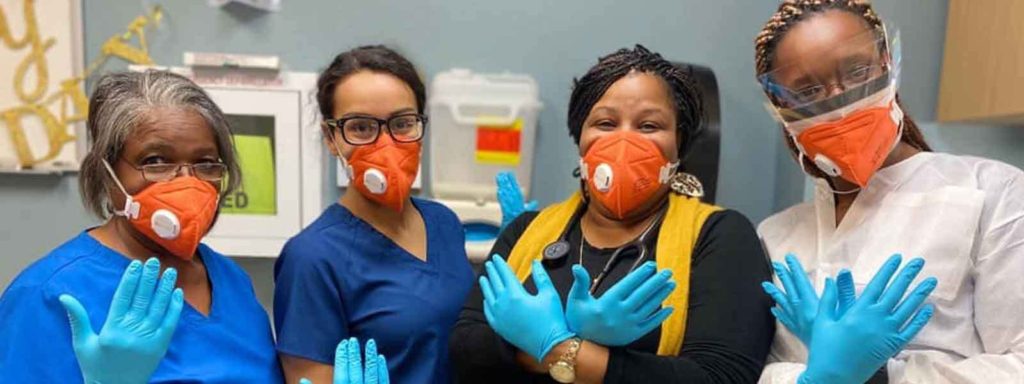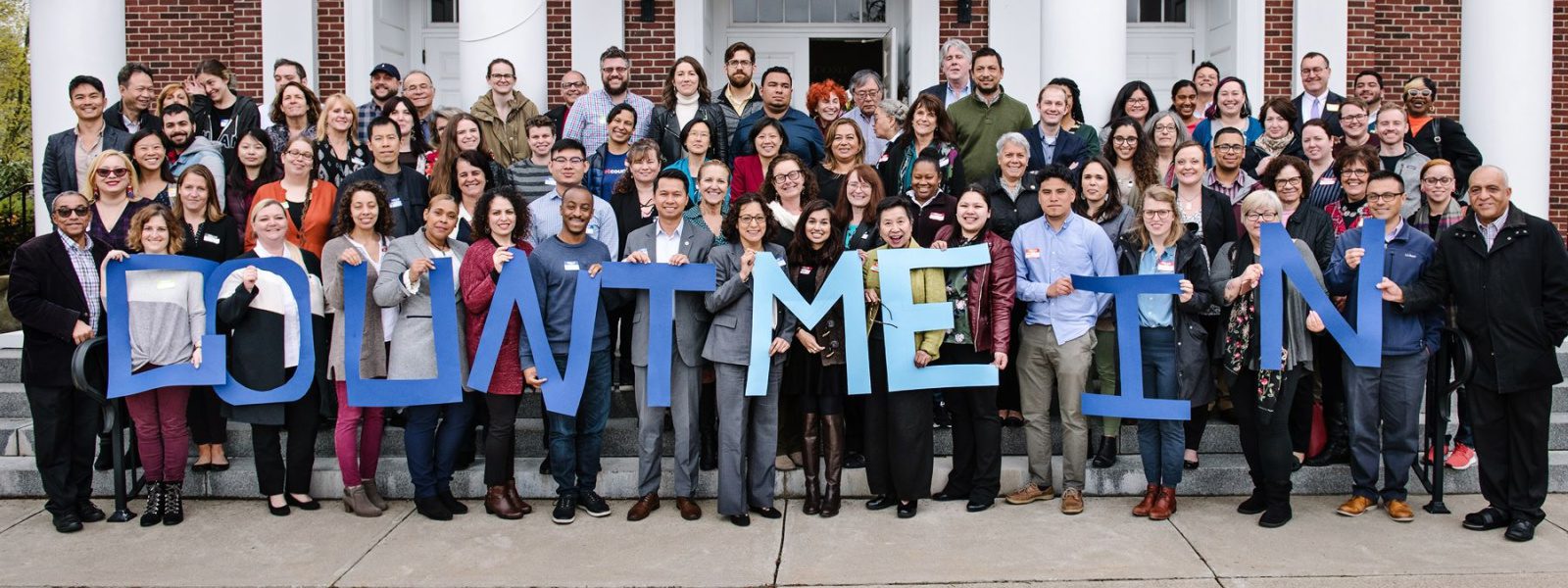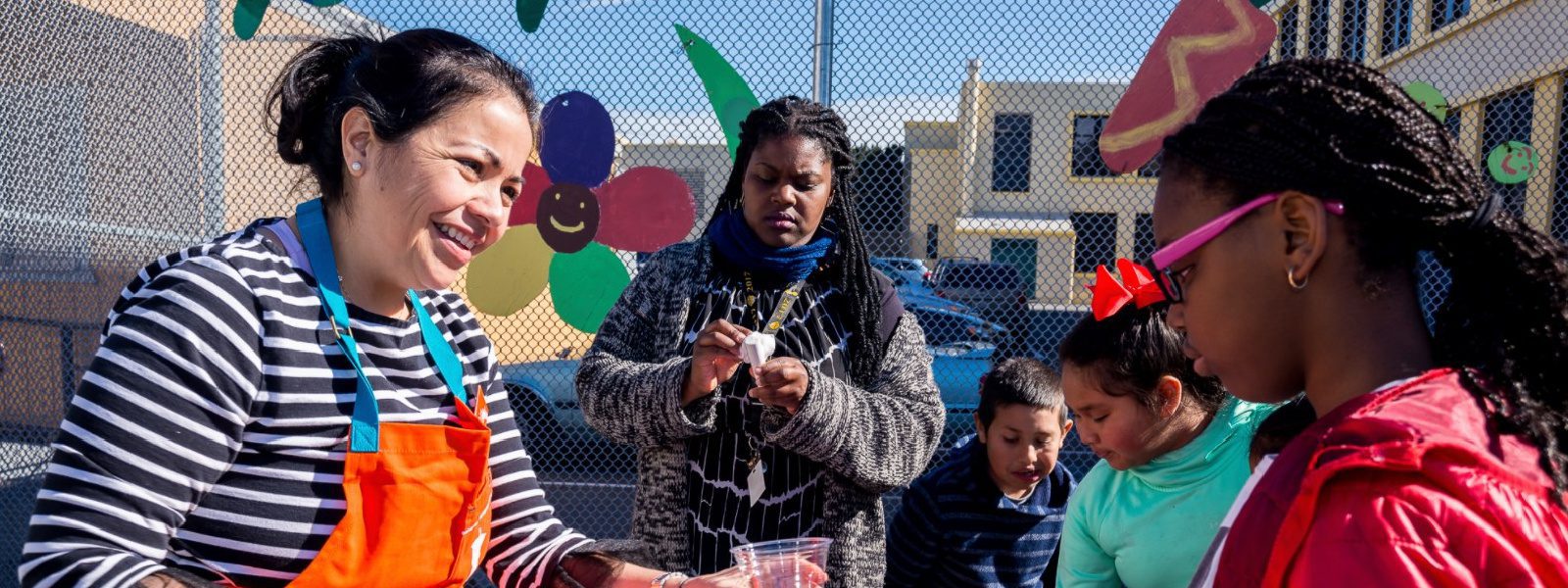During May, we celebrate nurses for all they do to keep patients healthy – even more deserved because of the COVID-19 pandemic, when excellent patient care can mean life and death. Nicole Lamoreaux, President and Chief Executive Officer of the National Association of Free and Charitable Clinics (NAFC), calls nurses “the heart and soul of what we do.” Her nonprofit works to ensure the medically underserved have access to affordable, quality health care.

A medical staff member works with a patient at Siloam Health in Nashville, Tennessee. Photo by William DeShazer and courtesy of NAFC
Based in Alexandria, Virginia, NAFC has 1,400 free and charitable clinics around the country, annually providing health care to 2 million people, and 6 million patient visits for them. They also have a volunteer and staff workforce of more than 200,000 people that work with the national organization – approximately 15,000 of whom are nurses. And because many pharmacies stepped up during COVID-19, particularly in communities that didn’t have pharmacies, NAFC became a pseudo “home” for them, too.
“We know there are so many people across the United States who fall through the cracks of our health care system,” Lamoreaux says. “They don’t make enough – and there’s no other way to say that – and they don’t qualify for Medicaid. There are also people who have Medicaid, but who don’t have access to dental care, mental health care, or prescription access.
“We are the community’s response to health care. We are grassroots medicine at its finest. We’re not funded by the federal government, we are all 501(c)(3) organizations, which makes us different than our other counterparts in the safety net sector.”
People connect with the clinics through word of mouth, direct outreach, their website (nafcclinics.org, which identifies clinics via a zip code map), or through community partners that connect people with rural or community health centers.
Similar to Independent Sector, Lamoreaux says NAFC’s goals are to build an equitable and just society, “and our part of that is focusing on health care.”
Nurses in NAFC’s clinics often lead the charge on equity, she said, citing the example of nurses in Atlanta who recognized that no walk-up clinics for COVID-19 testing were available in the city. So they started a walk-up testing clinic in front of a bus stop, so people could ride or walk up for testing. NAFC clinics across the country also ensure people working there look like and speak the languages of those they are serving.
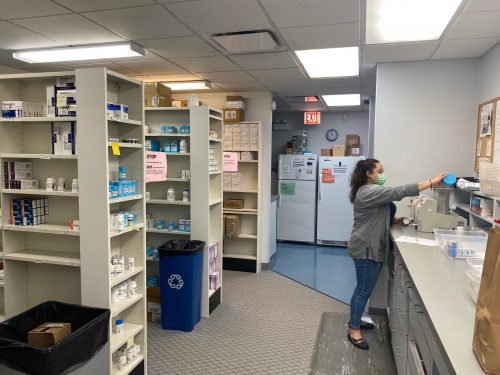
NAFC members also provide pharmacy services to patients. Photo courtesy of NAFC
Of course, COVID-19 posed unprecedented challenges for the U.S. – particularly around technology, access to personal protection equipment, and funding.
“Our first challenge was for our clinics to go from face-to-face appointments to telehealth. And given that we are not federally funded, making that transition had to happen very fast and in a way that was equitable. And while it’s easy to say, ‘Oh, just do a telehealth appointment,’ some communities don’t have access to broadband and not all patients have access to a computer,” Lamoreaux says.
Nine out of every 10 of their patients, she adds, use library computers, and with libraries being closed due to COVID-19, “it makes it difficult to do telehealth appointments.”
So they worked on getting tablets, laptops, or notebooks to those they serve so they could use them for their jobs, or homework, or to see their doctors. And because they wanted to continue to be where people came for all of their health and community needs, many NAFC clinics turned their parking lots into hot spots, with laptops and computers, so children could go do their homework.
“Funding also became a huge challenge for the work we do, given that we are run primarily on donations and the economy was dramatically impacted,” Lamoreaux says, adding it was amazing how clinics and their staff members stepped up to help people.
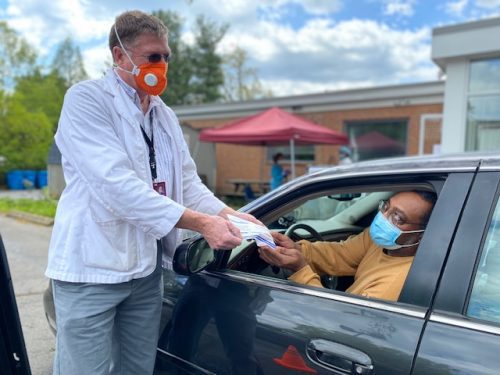
A staff member offers help to a person at the Bradley Free Clinic in Roanoke, Virginia. Photo courtesy of NAFC
“What’s more, we didn’t have access to personal protection equipment. But even worse, because we aren’t government funded, we had none for a long time. We were making PPEs. Our clinics used shower curtains as protective dividers so we could talk to people safely. We started doing drive-up food services and testing, so people didn’t miss out on their health care, and so we didn’t overwhelm the health care system with people who needed services like diabetes education or medication access.”
Advocacy and public policy are a big part of NAFC’s work, as well, to make sure the voices of NAFC clinics and patients are heard by elected officials. “It’s important for policy officials to understand when we say Black and Latinx people are dying at a faster rate from COVID than everyone else, I can say to them, ‘Why don’t you come to my clinics and see?’ …We all have to address the fact that racism is a public health crisis.”
Sometimes, her work brings tears to her eyes, like when NAFC participated at a New Orleans convention center’s ‘doctors’ offices for a day’ event. With some 1,200 people in line, an upset man asked to see the ‘lady in charge.’ “I realized he was angry because he couldn’t read and needed to fill out a piece of paper. At that moment, with all my good intentions, I realized I had set up the barrier to health care because I had arranged the process,” she recalls.
She stopped her work and took 15 minutes to read to him what he needed to know and do, and he went through the two-hour process. Afterward, he found Lamoreaux, handed her a backpack and said, “If you hadn’t helped me today, this is what I was going to do to myself. But please don’t open it. I’m fine now.”
Later, she did open it, finding 11 pill bottles, two bottles of alcohol, a gun, and a knife. That man is now a volunteer at an NAFC clinic in New Orleans. He says because he was able to talk honestly about his challenges he went from angry, unloved, and unwelcomed, to being a part of something bigger than himself – “all because people listened to him and didn’t just nod their heads, but actually took action.”
The National Association of Free and Charitable Clinics (NAFC) is an Independent Sector member. Services available at free and charitable clinics include: Primary medical care, chronic disease care and management, dental care, behavioral and mental health care, vision, care coordination, women’s health care, health education, smoking cessation, immunizations, and pharmacy services. The top photograph, which shows medical staff at Ubi Caritas in Beaumont, Texas, is courtesy of NAFC. Learn about other Independent Sector members and becoming a member.
